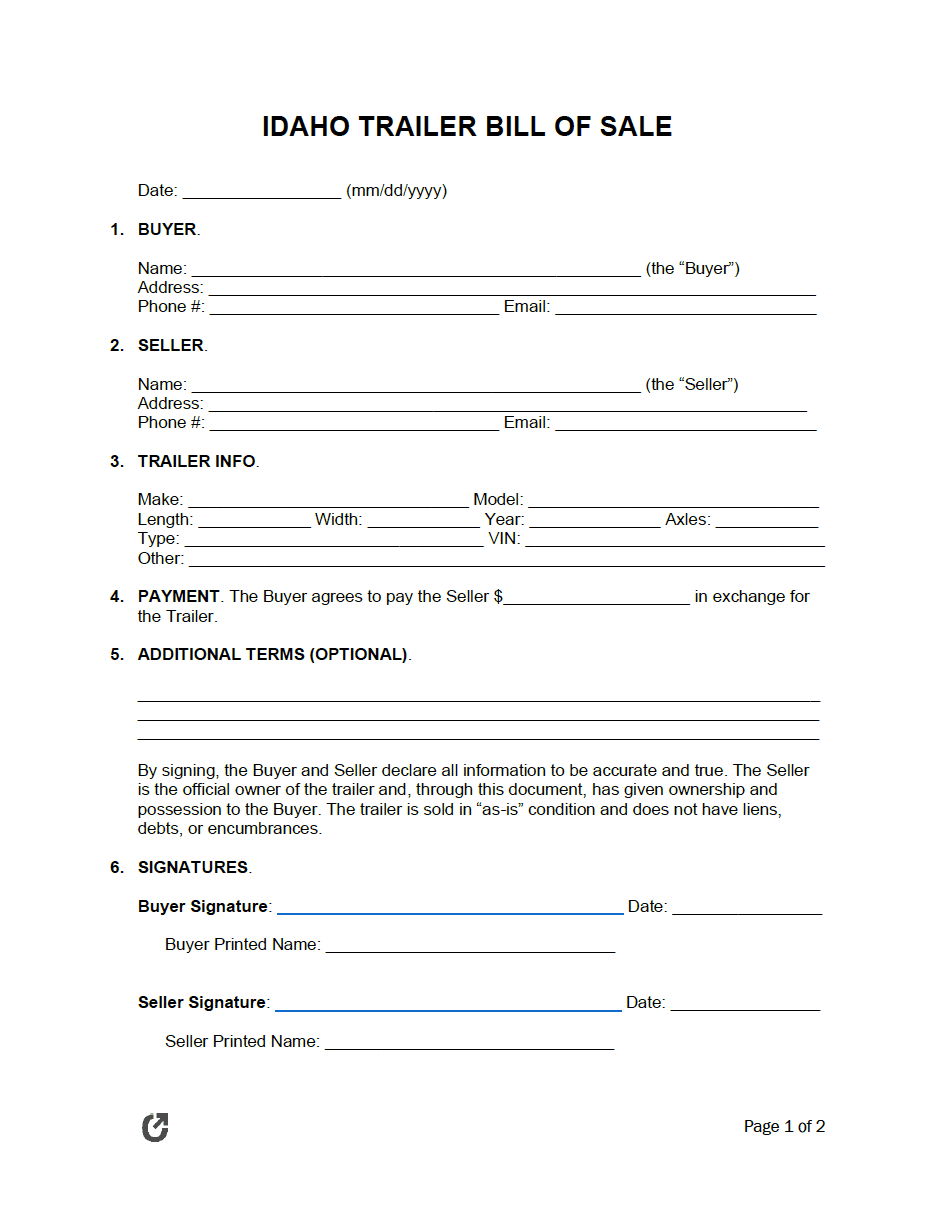Idaho Trailer Bill of Sale Form
An Idaho trailer bill of sale form identifies the buyer and seller in an ownership transfer. It references each person’s credentials and lists a complete report of the tow-behind. The buyer purchases the trailer “as-is,” thereby accepting its condition. Sellers do not have responsibility after the sale so long as they have informed the purchaser of the item’s cosmetic and/or physical flaws.
What is an Idaho Trailer Bill of Sale?
An Idaho trailer bill of sale suffices as proof of purchase when buyers pay sellers for tow behinds. The transfer can also happen by gift, which means the owner gives the trailer to another person for $0. In this case, both parties must include the deal in the bill of sale to establish confirmation of the exchange.
By accepting ownership, the buyer agrees to follow trailer regulations. They must follow state laws when using it to ensure law enforcement does not stop them. The vehicle attached to the trailer must have valid plates, registration, and an insurance policy. Residents must also register and title the property accordingly.
How to Register a Trailer (5 Steps)
Trailers weighing less than 2,000 (gross weight) need registering but not titling. Owners must visit their nearest county assessor’s office or Division of Motor Vehicles (DMV) location to apply for registration and/or title.
Step 1 – Registration Type
Residents can obtain a one (1), five (5), or ten (10) year registration. In-state and out-of-state dwellers can also apply for a permanent Idaho North America Plate (§ 49-415G). This type of plate does not expire; however, out-of-state owners must regularly provide proof of ownership.
Step 2 – Inspection
If required, the owner must have their trailer inspected before registration. A law enforcement officer must complete and sign a Vehicle Identification Number (VIN) Inspection Certification (Form ITD-3403). The applicant must bring the finalized form to the county assessor (or DMV) when registering and/or titling the trailer.
Step 3 – Title
In-state residents must title their trailer before registering it. However, trailers weighing less than 2,000 pounds (unladen) do not need a title. Out-of-state individuals do not need a title as long as they have the North America Permanent Trailer Plate.
To title the boat or utility trailer, the owner must provide the previous title (if used), bill of sale, VIN inspection form, and payment. The county assessor (or DMV) then approves or denies the application. If approved, the individual can register the trailer. However, if denied, the resident must learn why the office rejected them and resubmit paperwork to apply again.
Step 4 – Registration
Owners of trailers weighing 2,000 pounds or more must have a title before registering.
After the individual obtains the title and goes through inspection (as needed), they can apply for registration. The state provides one (1), five (5), and ten (10) year options. In addition, the owner can also apply for a permanent trailer registration, which lasts as long as they possess the trailer.
| Bring the Following: |
Step 5 – Renew
The renewal period depends on the type of registration obtained by the owner. Therefore, the individual should contact their local county assessor’s office or DMV to learn more about how to reapply for trailer registration.
